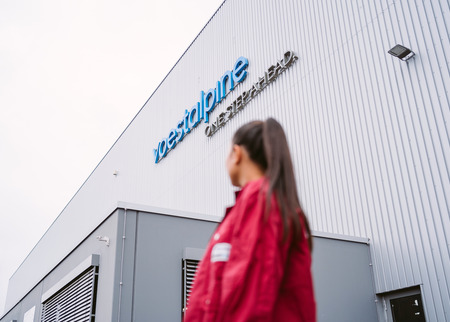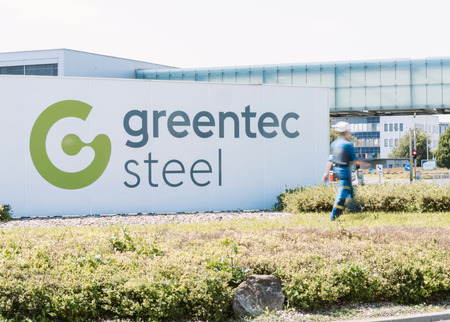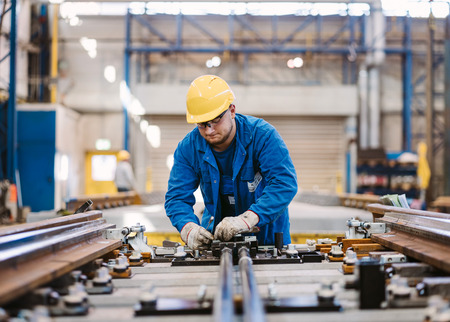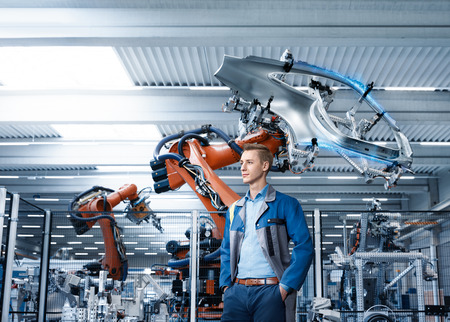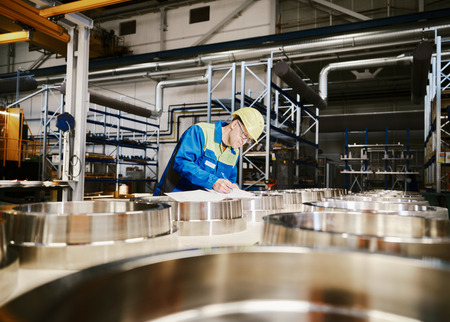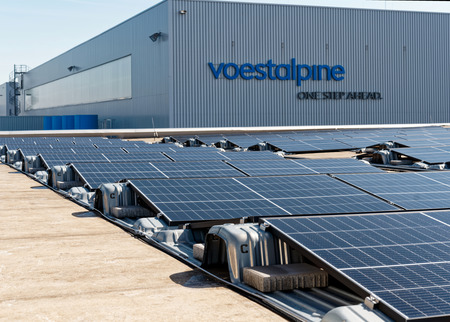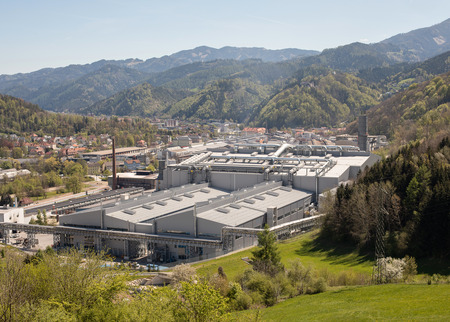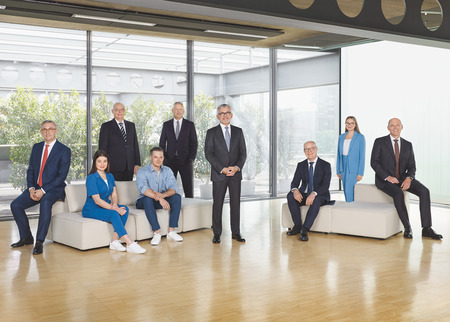- The steel and technology Group recorded the highest level of revenue and best operating result in the company’s history in the business year 2022/23, surpassing even its record year of 2021/22
- Revenue rose by 22.1% over the previous year, from EUR 14.9 billion to EUR 18.2 billion
- Operating result (EBITDA) grew to EUR 2.5 billion (previous year: EUR 2.3 billion); EBITDA margin: 14%
- Profit from operations (EBIT) increased by 11.7% year-on-year, to EUR 1.6 billion (previous year: EUR 1.5 billion); EBIT margin: 8.9%
- Profit before tax rose by 7.8% to EUR 1.5 billion; profit after tax fell by 11.4% to EUR 1.2 billion due to non-recurring effects in the previous year
- Net financial debt once again significantly reduced (-27.5%), to EUR 1.7 billion, its lowest level since 2006/2007
- Equity climbs to new record level of EUR 7.8 billion; gearing ratio reduced further to 21.4% as of March 31, 2023 (previous year: 32.4%)
- Number of employees (full-time equivalent) rose by 1.9%, from 50,200 to 51,200
- Dividend of EUR 1.50 per share proposed to the Annual General Meeting (previous year: EUR 1.20)
- Outlook 2023/24: EBITDA between EUR 1.7 billion and EUR 1.9 billion
In the business year 2022/23 (from April 1, 2022 to March 31, 2023), the voestalpine Group once more demonstrated the robust nature of its corporate strategy, which is based on its global presence and industrial diversification. Despite operating in an exceptionally volatile environment—including the war in Ukraine, high inflation and increasing interest rates, supply chain disruptions, and strong rises in energy prices—voestalpine posted the best results in the company’s history.
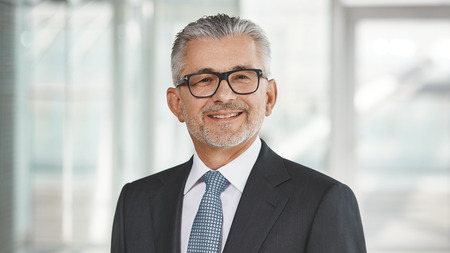
Demand for our high-quality products remained relatively stable in this extremely volatile environment. We were able to again achieve record revenue and earnings, and have the lowest level of debt in 16 years. That means we are well prepared for the challenges and investments which lie ahead of us.
The energy sector (oil and natural gas, in particular) did very well, and demand for voestalpine’s solar industry products continued to grow also. The voestalpine Railway Systems business segment developed along a very satisfactory trajectory yet again too. As the leading provider worldwide for complete rail technology systems, it was contracted to design and deliver rails and turnout systems for Great Britain’s new high-speed network (“High Speed 2”). Add to that orders for international rail infrastructure projects that will run for several years. During the business year 2022/23, the voestalpine Group also succeeded in securing several major orders for the coming years from renowned international aerospace manufacturers. Demand in this segment, which had already started to expand in the previous business year, continued rising in the reporting period. Growing demand for short and medium-haul planes (i.e., single-aisle aircraft) is key to this development. By contrast, the consumer goods and white goods industries, as well as the construction industry, had to contend with declining demand throughout the business year ended. As before, the European automotive industry faced ongoing supply chain bottlenecks throughout the reporting period, resulting in volatile purchasing patterns in the automotive supplies industry. The economic environment outside of Europe benefited voestalpine’s facilities. The storage system business segment profited in the business year 2022/23 as well from the e-commerce trend that continues unabated.
Results at record level
voestalpine posted record revenue and results in many earnings categories in the business year ended. Revenue rose by a further 22.1%, to EUR 18.2 billion, following the leap in revenue in the previous year (EUR 14.9 billion). The operating result (EBITDA) grew by 11.1% to EUR 2.5 billion (business year 2021/22: EUR 2.3 billion). Profit from operations (EBIT) increased by 11.7% to EUR 1.6 billion (business year 2021/22: EUR 1.5 billion). The earnings categories were subject to both positive and negative influences: two divisions reported non-recurring effects (impairment losses) totaling EUR 205 million in the business year 2022/23, while positive effects to the tune of EUR 133 million were achieved from selling a plot of land.
Profit before tax was EUR 1.5 billion (previous year: EUR 1.4 billion), profit after tax fell by 11.4% to EUR 1.2 billion. The comparative figure of EUR 1.3 billion for the previous year included a positive valuation of EUR 257 million resulting from the sale of the HBI plant in Texas (USA).
It was possible to further reduce debt during the business year 2022/23. At EUR 1.7 billion (previous year: EUR 2.3 billion), net financial debt reached the lowest level since the business year 2006/2007, more than halving within three years. The gearing ratio (net financial debt as a percentage of equity) dropped significantly year-on-year, from 32.4% to 21.4%. The voestalpine Group’s equity achieved a record high level of EUR 7.8 billion.
As of March 31, 2023, the number of employees in the voestalpine Group worldwide amounted to 51,200 (full-time equivalent) which is 1.9% more than in the previous year (50,225).
Proposed dividend: EUR 1.50
Subject to approval by the Annual General Meeting of voestalpine AG on July 5, 2023, a dividend of EUR 1.50 per share will be paid to the company’s shareholders. Relative to the voestalpine share’s average price of EUR 25.09 in the business year 2022/23, the dividend yield for the business year is 6%, a substantial increase over the previous business year’s 3.6%.
Gradual commissioning of the world’s most advanced special steel plant
Four years after the official groundbreaking ceremony, construction of the special steel plant at the voestalpine site in Kapfenberg was successfully completed in the business year 2022/23. Test operations in the form of hot commissioning started at the end of the business year 2022/23. The Group’s largest investment in recent years will gradually become fully operational during the business year 2023/24. Once fully operational, the new plant will produce around 205,000 tons of special steel for the international aerospace, oil and natural gas, automotive and toolmaking industries annually, and set new standards in digitalization and sustainability. One of the measures taken to ensure production is ramped-up as quickly as possible following the delays already reported was for the Group subsidiary voestalpine BÖHLER Edelstahl to significantly increase its own contribution to the project. As already reported, this will result in a potential cost overrun of up to 30% over the initial planned investment of EUR 350 million.
Total investments made by the voestalpine Group in the business year 2022/23 amounted to EUR 922 million, which is 30% more than in the previous year (EUR 708 million). The focus lay in technical optimizations to existing plant and equipment, and replacement investments.
Important milestone for greentec steel
Approval by the Supervisory Board of voestalpine AG given in March 2023 for the EUR 1.5 billion investment in greentec steel marked an important milestone for the Group’s future. According to the plan, decisions on plant and suppliers will be made during 2023, with construction slated to start in 2024, and commissioning of the two electric arc furnaces in 2027. As a result, the Group will be able to reduce its CO2 emissions by up to 30% from 2027, which represents almost 5% of Austria’s entire CO2 emissions. An important prerequisite for this next major step is to resolve funding issues. From 2030, voestalpine plans to replace another blast furnace at each of the sites in Linz and Donawitz. The Group is already conducting research into several new processes and investing in pilot projects to open up new pathways in steelmaking and achieve the goal of carbon neutrality by 2050.
Outlook for the business year 2023/24
After weathering an interim, very subdued phase following the Northern summer, the business year 2022/23 ended on a positive note that continues to defy forecasts of an economic decline. The fact that the COVID-19 pandemic has largely been overcome, the significant easing of international supply chain pressures, and, not least, the reduction in Europe’s dependence on Russian sources of energy in record time contribute to the still prevailing positive economic sentiment.
One cannot ignore the fact, however, that the war in Ukraine rages on and that overall geopolitical tensions worldwide are on the rise. Inflation in both Europe and North America has also turned out to be more persistent than expected. This means that the central banks on either side of the Atlantic are not expected to reverse their interest rate hiking cycle even though its fallout is already negatively affecting the banking sector.
Given that the central banks have accorded highest priority to the fight against inflation and are working to achieve it by slowing the momentum in both prices and demand, this policy is generally expected to put a damper on the economy after some time.
Yet expectations as to the development of different economic regions and individual market segments have differed widely so far.
The coming months will show whether China’s abandonment of its strict zero-COVID policy and subsequent reopening will substantially boost economic growth in the business year 2023/24 compared with the reporting period. As interest rates continue to rise in North America, just as in Europe, we expect demand for voestalpine’s products to slow down during this phase in these two economic regions. Despite the sharp drop in inflation, demand in Brazil is expected to slow slightly due to uncertainties arising from the change in government as well as declining exports in a globally cooling economy.
As far as individual market segments are concerned, we expect the consumer goods and white goods industries to continue along a fairly subdued trajectory. The construction industry is expected to continue weakening over the course of the business year 2023/24. The automotive industry, by contrast, should follow a largely stable trajectory at the current level thanks to still existing orders on hand and the improvement in international supply chains. While demand from the conventional energy sector (oil and natural gas) is expected to remain good in the business year 2023/24, it will no longer reach the record highs seen during the business year ended.
The upward trends in both the renewable energy sector and the aerospace industry should continue unabated in the current business year.
Good demand from the traditionally stable railway infrastructure market segment is expected for the business year 2023/24 and beyond. For one, there is a large need for investment in some European countries in this area; for another, the worldwide trend toward climate action will continue to buttress this market segment in the long term.
Assuming that the global economy will not be hit by massive economic distortions on account of the central banks’ interest rate polices and that there will be no further escalation scenarios in the Ukraine war or additional geopolitical tensions, the Management Board of voestalpine AG expects the Group to generate EBITDA of between EUR 1.7 billion and EUR 1.9 billion in the business year 2023/24.
The voestalpine Group
voestalpine is a globally leading steel and technology group with a unique combination of materials and processing expertise. voestalpine, which operates globally, has around 500 Group companies and locations in more than 50 countries on all five continents. It has been listed on the Vienna Stock Exchange since 1995. With its premium products and system solutions, voestalpine is a leading partner to the automotive and consumer goods industries, as well as to the aerospace and oil & natural gas industries. The company is also the global market leader in railway systems, tool steel, and special sections. voestalpine is committed to the global climate goals and has a clear plan for decarbonizing steel production with its greentec steel program. In the business year 2022/23, the Group generated revenue of EUR 18.2 billion, with an operating result (EBITDA) of EUR 2.5 billion; it has around 51,200 employees worldwide.
